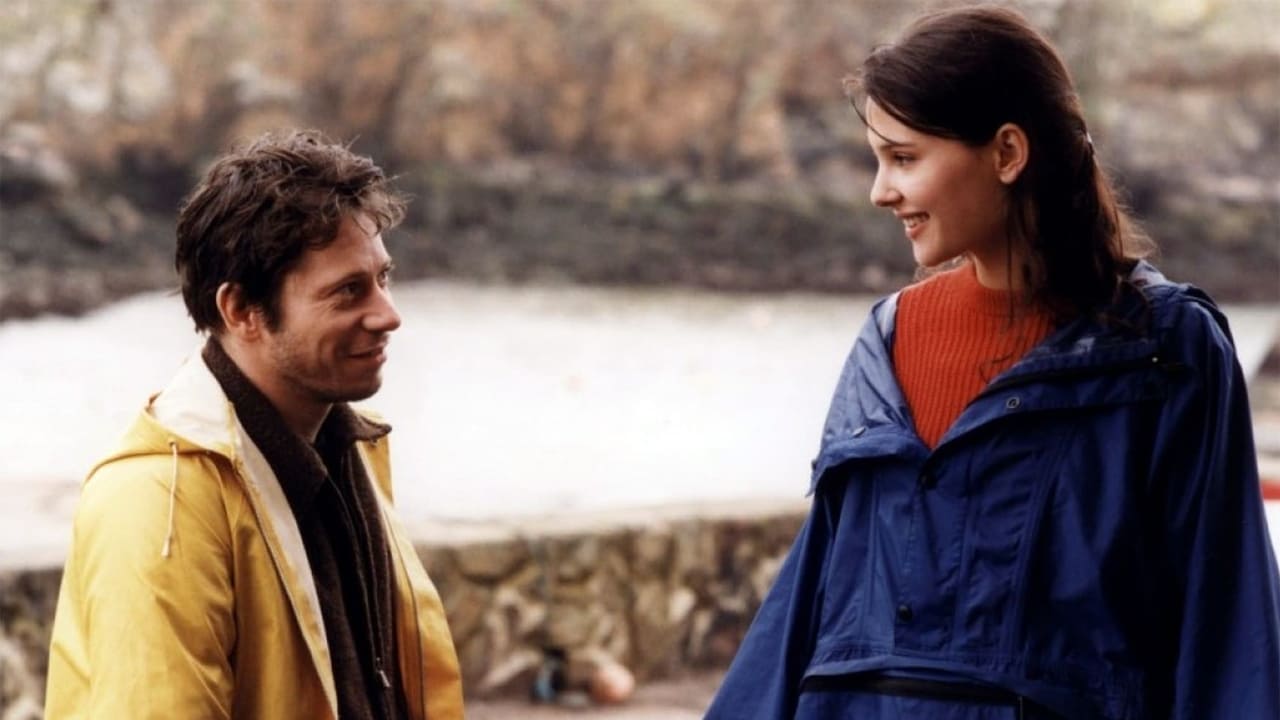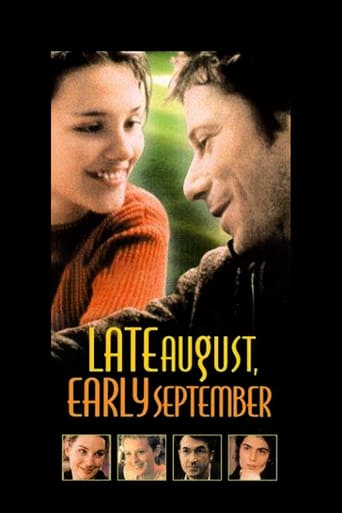

From my favorite movies..
... View MoreExcellent, a Must See
... View MoreBetter Late Then Never
... View MoreAbsolutely amazing
... View Morei like french films, especially french films where everybody thinks they are the bomb, nobody works and everybody lounges around drinking coffee. that's my ideal in life, but enough about me. the story is about a bunch of middle aged people who each is going through some sort of crisis. basically they meet each other and discuss their life, not in a direct way, but through inneundo. are they full of themselves, yes, but it's still fun to watch. not the best of film making, but while we rot on this planet and babes like the one you see on this movie are out of our grasp, we can watch this movie. man this review is lame! fudge IMDb! fudge comments!
... View MoreThis is a pretty stereotypical French film in that involves a lot a not-terribly-interesting, very bourgeois French people talking endlessly about their personal relationships and the meaning of life (I wasn't expecting Hollywood-style gun fights and car crashes, but there has to be a happy medium somewhere). The bland lead is dealing with his failed relationship with his long-time ex-girlfriend and his inability to commit to his present lover (Virginie Ledoyen)as he also comes face-to-face with his unrealized literary ambitions and the imminent death of his older and slightly more successful mentor. The dying mentor, meanwhile, is a published but still obscure author. Although he is middle-aged, he has taken on an unusually precocious fifteen-year-old as a mistress--why? because this a French movie, the country that gave us Eric "Claire's Knee" Rohmer and was the first to publish Vladimir Nabokov's scandalous novel "Lolita"--making borderline pedophilia look vaguely classy seems to be a longstanding French cinematic tradition.The best reason to watch this movie is for Virginie Ledoyen who is most familiar to American audiences as Leonardo DeCaprio's girlfriend in "The Beach" and for her appearance on the cover of a number of lowbrow men's magazines like "Maxim". She is actually a pretty good actress though and the movie shows some signs of life whenever she is on screen (which is all too infrequently I'm afraid). The only other remarkable things about this movie is the relative dearth of sex scenes (although there is one memorable very one with Ledoyen near the end)and the fact that many of these characters actually seem to have jobs(!)and are not just lounging on the beach or in the countryside as is usually the case in French movies. Other than that this film is very stereotypical. If you like talky French movies in general, you'll probably like it, but if not, I wouldn't bother.
... View MoreThe style of the film, described elsewhere as in the 'Dogme 95' genre, really works well for this story, especially on the cinema screen; on video, the transfer was made from a slightly poor-quality print, which is too bad - the photography in the movie is excellent. For the technically-oriented, "Fin Aout, Début Septembre" was filmed in Super-16mm, and in my opinion this sort of plot is perfectly suited to the S16, or the DV-originated type of storytelling technique. It's true there was no murder or gratuitous violence, no rape or incest, no endless spurting of tears and confessions, which is frankly the reason I love this film. The dialogues are believable, the characters are very real, with that feeling of people we've known and maybe not always loved or cared to be around, but who are part of life nonetheless...I admire a filmmaker who is willing to present characters that are based in life, not in movie clichés, and Assayas pulls it off here wonderfully in my opinion.
... View MoreA beautiful and moving film filled with understated yet extremely rich, quietly complex character studies. The people in this film are so real, they don't seem like fictional characters at all and the movie has the natural rhythm of real life. The interaction and inter-connections are rare in movies. Often very funny, Late August, Early September is also quite heartbreaking. One of the best films in years.
... View More